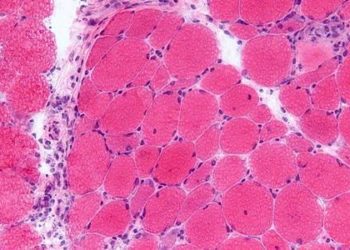Prophylactic nirsevimab treatment reduces RSV risk in infants
1. Prophylactic nirsevimab lowered the incidence of respiratory syncytial virus (RSV)-associated lower respiratory tract infection compared to the placebo group.
2. Nirsevimab had a favorable safety profile without causing hypersensitivity reactions.
Evidence Rating Level: 1 (Excellent)
Study Rundown: Respiratory syncytial virus (RSV) is the most common cause of lower respiratory tract disease among infants and young children. Additionally, RSV is the leading cause of infant death. RSV illness prevention continues to be a major public health priority without any effective prophylactic treatments currently available. Nirsevimab, a recombinant human immunoglobulin G1 kappa monoclonal antibody, has become a candidate due to the antibody’s neutralizing activity by binding to the highly conserved epitope on the RSV fusion protein. As such, this study evaluated a single dose nirsevimab prophylactic treatment in healthy preterm infants. The study determined that a single nirsevimab dose led to a 70% lower incidence of RSV-associated lower respiratory tract infection in preterm infants. One limitation of this randomized trial was that it was restricted in its ability to compare the trial’s results to previous studies. Due to differences in antibodies, end points and dosing regimens, the comparison between studies could not be made and therefore created uncertainty in determining the most effective prophylactic treatment. Nonetheless, this study was strengthened by its long-term patient follow-up and evenly matched study groups.
Click to read the study, published today in NEJM
Relevant Reading: The respiratory syncytial virus vaccine landscape: lessons from the graveyard and promising candidates
In-Depth [randomized controlled trial]: This randomized control trial enrolled 1553 patients in a multicenter study from 23 countries. Inclusion criteria consisted of healthy infants who had been born preterm, 1 year of age or younger, and were entering their first RSV season. Patients who previously had an acute illness at the time of randomization or had a previous RSV infection were exlcuded. The patients were randomized in a 2:1 ratio to receive a 50 mg intramuscular nirsevimab injection or placebo injection. The primary outcome was RSV-associated lower respiratory tract infection through 150 days after treatment administration. RSV-associated lower respiratory tract infection was defined as a positive RSV test and a physical exam indicating involvement of the lower respiratory tract. RSV-associated lower respiratory tract infection occurred in 2.6% (n, 25) of the participants in the nirsevimab group compared to 9.5% (n, 46) of the participants in the placebo group. The incidence of RSV-associated lower respiratory tract was 70.1% (95% confidence interval [CI], 52.3 to 81.2; P<0.001) lower in the nirsevimab group compared to the placebo group. Furthermore, hospitalization for the condition happened in 0.8% (n, 8) of the participants in the nirsevimab group compared to 4.1% (n, 20) of the participants in the control group. The incidence of hospitalization was 78.4% (95% CI, 51.9 to 90.3; P<0.001) lower in the nirsevimab group compared to the control group. Overall, infants who received the nirsevimab dose had a lower risk of RSV-associated lower respiratory tract infection (hazard ratio, 0.26; 95% CI, 0.16 to 0.43) and a lower risk of hospitalization (hazard ratio, 0.19; 955 CI, 0.08 to 0.44). Finally, 11.2% (108 of 968) of participants in the nirsevimab group and 16.9% (81 to 479) of participants in the placebo group reported severe adverse events. Specifically, no adverse events were related to anaphylaxis or other notable hypersensitivity reactions. Taken together, prophylactic treatment of nirsevimab significantly lowered the incidence of RSV-associated lower respiratory tract infection and hospitalizations.
Image: PD
©2020 2 Minute Medicine, Inc. All rights reserved. No works may be reproduced without expressed written consent from 2 Minute Medicine, Inc. Inquire about licensing here. No article should be construed as medical advice and is not intended as such by the authors or by 2 Minute Medicine, Inc.







